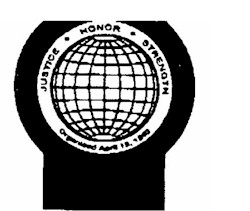
ARTHUR A. COIA
General President
R P VINALL
General Secretary-Treasurer
MASON M WARREN
VERE 0 HAYNES
FNRICO MANCINELLI
CHLICK BARNES
JACK WILKINSON
GEORGE R GUDGER
MIKE QUEVEDO.JR
ARMAND E SABITONI
CARL E
BOOKER
Assistant to the
General President
PETER.J FOSCO
TERRENCE M
HEALY
RAYMOND M POCINO
EDWARD NI. 5MITH
WILLIAM H. QUINN
MTCHAEL S.
BEARSE
General Ccoumsel
HEADQUARTERS
905-16th Street, NW
W3shington, D.C.
20006-1765
(202) 737-8320
Fax (202) 737-2754
LABORERS' INTERNATIONAL UNION OF NORTH AMERICA
NEW ENGLAND REGIONAL OFFICE
226 South Main Street - Providencc. RI 02903 - (401) 751-8010 - Fax (401) 861-3340
DATE: March 22, 1999
TO: All Connecticut Construction Local Unions and Members
FROM: Armand E. Sabitoni, Vice President and Regional Manager
RE: Contract Ratification
RANK AND FILE CONTRACT RATIFICATION
Over the past few months there has been a
coordinated effort within our locals
around the State to push the issue of rank and file contract ratification. This is
part of an effort to create political divisions in our sister locals in Connecticut.
The issue is being used as part of an ongoing attack on the strength and unity of
the District Council. The purpose is to promote the narrow interests of a few at
the expense of all our sister locals and members in Connecticut.
The basic point to understand is
that rank and file voting on contract ratification
is not the real issue. The Uniform District Council Constitution for many years
has allowed Council delegates to authorize our negotiating committee to settle
an agreement for one simple reason - because this maximizes the bargaining
power and strength of the negotiating committee in dealing with the signatory
contractors. That united bargaining strength, in turn, has resulted in many
historic gains for our members including solid pension and health benefit plans,
legal service and annuity funds, competitive wages and benefits, innovative
labor-management cooperation programs that have helped to create additional
union jobs, and job safety and training programs. These benefits and programs
are the keys to our past and future success. And, the ratification process is
dcmocratic because the Council delegates are in turn elected directly by the
membership. If the members believe that the committee has not done its job,
then the delegates can be voted out and replaced at the next local union election.
On the other hand, direct membership ratification of the contract adds an
element of instability and uncertainty at the table that dilutes the negotiating
committee's strength and means that the committee may not be able to deliver
on the contract. It means that contractors can try and create divisions and splits
among the special interests of locals in different areas of the State and play off
one faction against another. It also increases the ability of a few locals to block
an agreement that may be in the best interest of the overall membership.
contract ratification. Many unions such as ous follow our practice and do not
provide for such ratification while some others do. In any event. thm is a
recognized method within our Union to change the ratification procedure if that
is the majority's wish and that is by resolution to amend the Constitution at the
upcoming convention in 2001. In the meantime, do not be fooled into allowing
a few politically ambitious people to misue this issue to advance their own
interests at your expense.
cc: Connecticut Laborers' District Council
The attached correspondence is for your
information and/or attention.
If there is anything further you wish to know
regarding same, please advise.
Armand E. Sabitoni
Vice President and
Regional Manager
LABORERS INTERNATIONAL UNION
OF NORTH AMERICA
226 South Main Street
Providence, RI 02903